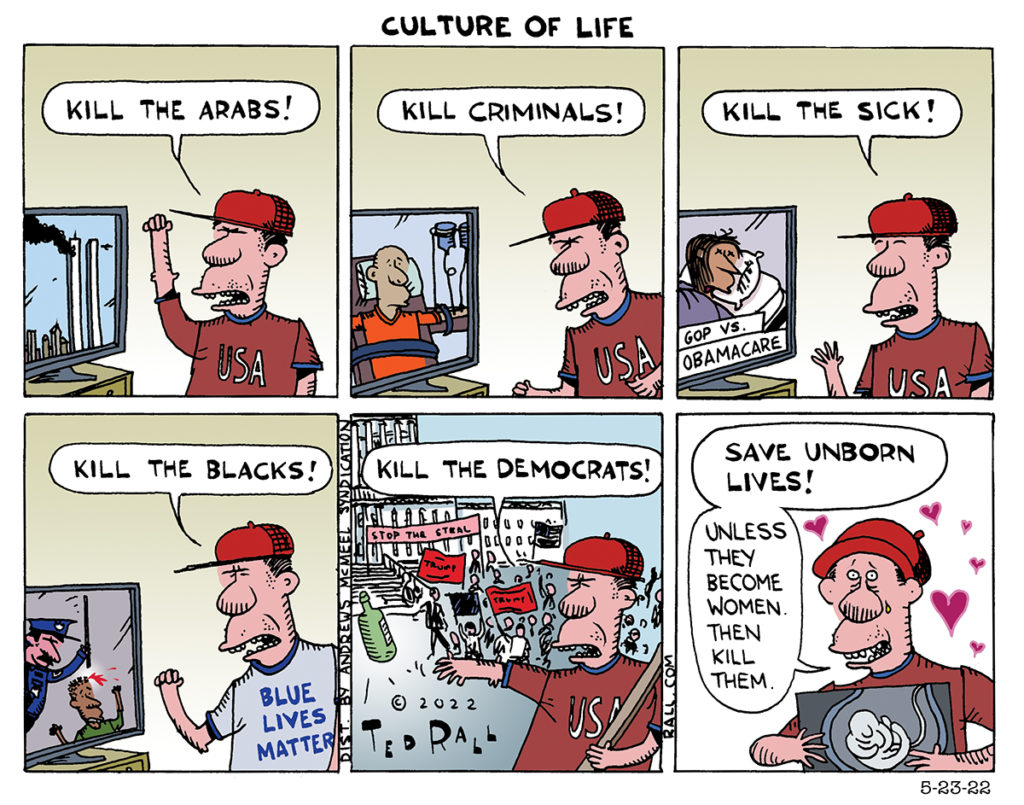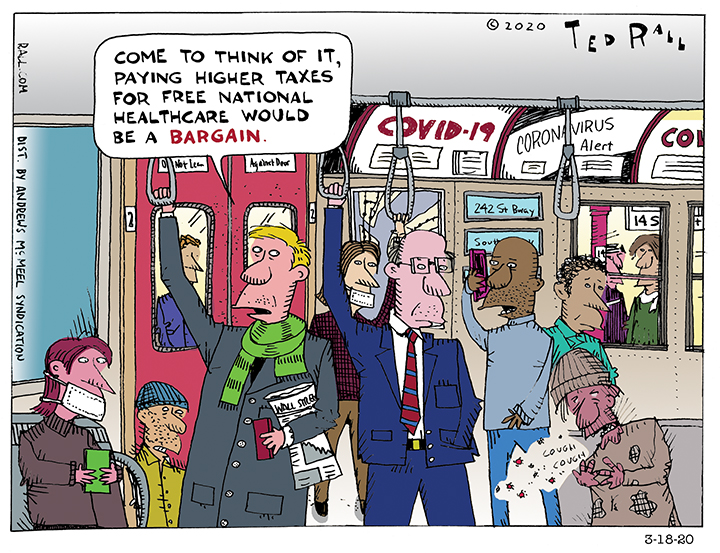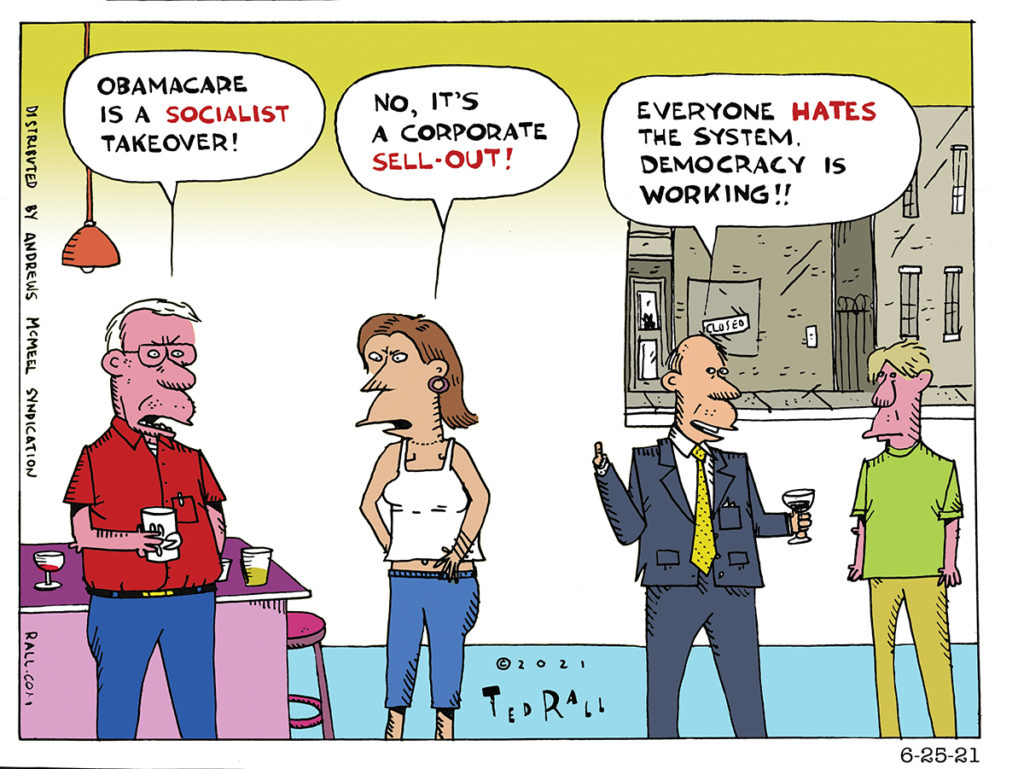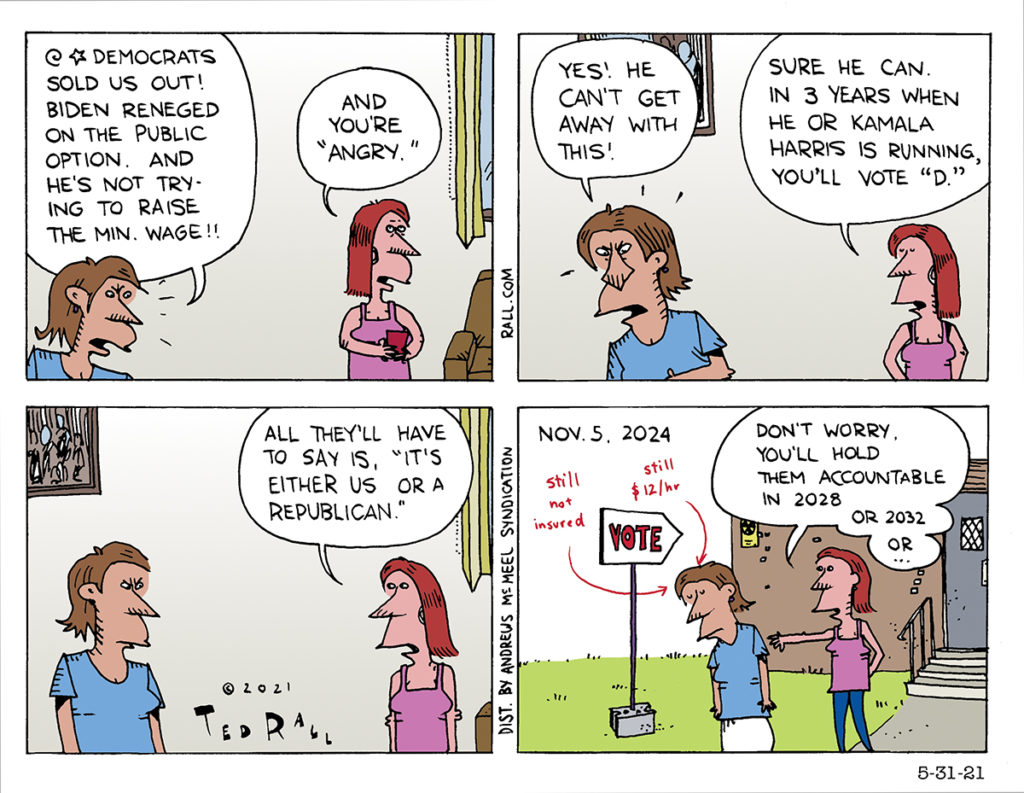The shooting death of United Healthcare CEO Brian Thompson has sparked a national conversation about the state of healthcare in the United States. The accused shooter, Luigi Mangione, allegedly wrote a manifesto in which he pointed out that the U.S. has low life expectancy despite paying the highest costs for healthcare in the world. And he appears to have lit a fuse as “Wanted” posters have gone up on the city streets depicting other health insurance company executives accused of putting profits before their clients’ health at the same time Thompson’s bereaved family laid one of the most despised dead people in America to rest.
“The TMI Show”’s resident leftist Ted Rall, guest co-host Robby West and guest Steve Gill, a conservative talk host, discuss Health Insurance Horror Stories, the future of for-profit healthcare under Trump and what, if anything, could be done to reduce Americans’ anger at a system that ought to be helping them.

 The arrest of a suspect in the assassination of UnitedHealthcare CEO Brian Thompson on a street in midtown Manhattan leaves some questions unanswered. But the gleeful reaction to the executive’s slaying leaves nothing subject to interpretation. Many Americans feel that they have been treated so shabbily by the health insurance industry that they despise it and want their leaders to die—and they’ve been
The arrest of a suspect in the assassination of UnitedHealthcare CEO Brian Thompson on a street in midtown Manhattan leaves some questions unanswered. But the gleeful reaction to the executive’s slaying leaves nothing subject to interpretation. Many Americans feel that they have been treated so shabbily by the health insurance industry that they despise it and want their leaders to die—and they’ve been  Anyone who has experience haggling at a flea market has intuited the basics of negotiating. If a seller offers the item you want at a fire-sale price that you’re unlikely to find elsewhere, smile, pay the asking price and walk away before they change their mind. If the requested price is many times higher than you’re willing to pay, just walk away. Stratospheric pricing pretty much eliminates the odds that you’ll be able to come to terms. Your time is better spend haggling with a different vendor. In other cases, offer a low-ball rate and work toward middle ground.
Anyone who has experience haggling at a flea market has intuited the basics of negotiating. If a seller offers the item you want at a fire-sale price that you’re unlikely to find elsewhere, smile, pay the asking price and walk away before they change their mind. If the requested price is many times higher than you’re willing to pay, just walk away. Stratospheric pricing pretty much eliminates the odds that you’ll be able to come to terms. Your time is better spend haggling with a different vendor. In other cases, offer a low-ball rate and work toward middle ground.



